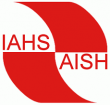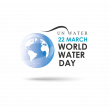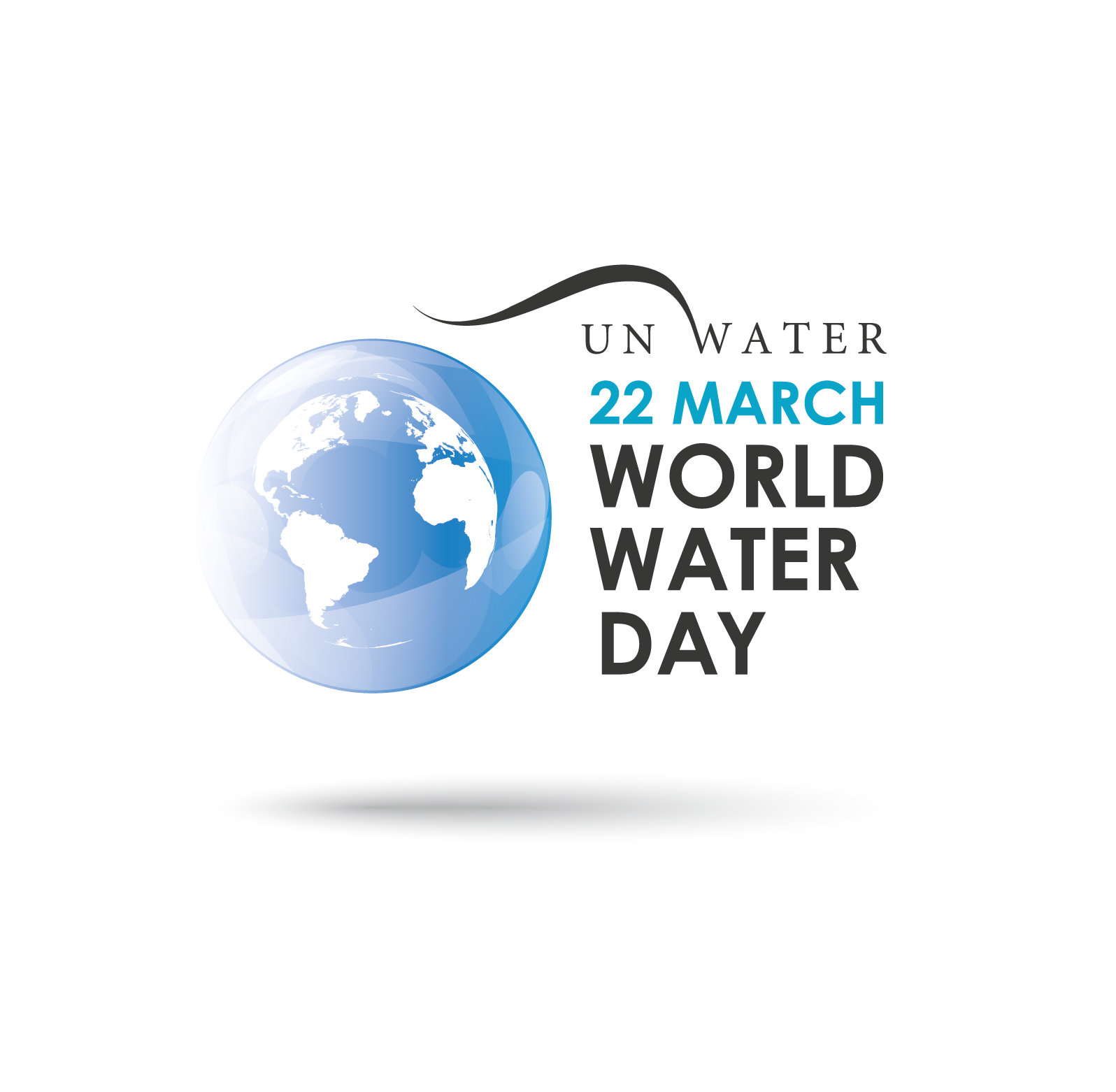WSKEP news
The news items below have been collected from a number of sources and they all relate to water security.
If you have a story that should be featured, see the panel to the right.
Warning: Declaration of UserPickerAttributeTypeController::saveValue() should be compatible with Concrete5_Controller_AttributeType_Default::saveValue($value) in /interweb/liveweb/hostdomains/concrete5.6_base_install/packages/problog/models/attribute/types/user_picker/controller.php on line 19

The outlook for April is for river flows and groundwater levels in the south east of England to be normal to below normal, while in the rest of the UK normal river flows and groundwater levels are most likely.
Over the next three months there is the possibility of very low groundwater levels occurring in parts of south-east England (i.e. the Chalk of Kent and Sussex, and possibly the Chilterns). Elsewhere in the UK over this time scale, normal river flows and groundwater levels are most probable.
Groups of farmers and organisations in the north of England will benefit from funding to develop natural flood management projects.
The focus of this round of the Facilitation Fund is on developing a new approach to natural flood management, to help communities hit by the winter storms of 2015 and early 2016.
Organisations such as the National Trust, Yorkshire Dales National Park and the Rivers Trust are joining forces with farmers.
They will plant trees, create water meadows and restore rivers to their natural meanders within river catchments in Cumbria, Lancashire, Greater Manchester, Northumberland, County Durham and Yorkshire.
Read the full story here.
The Catchment Management Modelling Platform (CaMMP) which was launched on 9 March 2017 at an event hosted by the Department for Environment, Food and Rural Affairs (Defra) in London.
A web-based platform the CaMMP project aims to improve access to and integration between data and models that help address key questions in catchment management for water quality and wider ecosystem services. Professor Bridget Emmett from the Centre for Ecology & Hydrology is the project lead. The project team comprised ADAS RSK, Atkins, CEH, CREW, James Hutton Institute and the University of Reading.
Find our more from the CaMMP website.
Severn Trent Water has started work on its £300 million Birmingham Resilience Project after years of planning.
An official groundbreaking ceremony was help at Lickhill, near Stourport. For over a century, most of Birmingham’s water has flowed down the Elan Valley Aqueduct (EVA) from reservoirs in the Welsh hills. The aqueduct is over a hundred years old and needs maintenance to keep it in service, which means draining it for extended periods.
Read more here.

The Secretary General of IAHS is pleased to announce that the jury of the IAHS Tison award for young hydrologists (chaired by Demetris Koutsoyiannis) identified the following paper as the 2017 winner:
Mohammad Merheb, Roger Moussa, Chadi Abdallah, François Colin, Charles Perrin & Nicolas Baghdadi (2016) Hydrological response characteristics of Mediterranean catchments at different time scales: a meta-analysis, Hydrological Sciences Journal, 61:14,2520-2539, DOI: 10.1080/02626667.2016.1140174
Read the full story and paper here.
Natural measures to prevent floods valuable but not ‘a silver bullet’, say researchers
Oxford Martin restatement finds claims that natural flood management will alleviate the worst floods are not supported by scientific evidence. Natural measures to manage flooding from rivers can play a valuable role in flood prevention, but a lack of monitoring means their true potential remains unclear, researchers say.
Such measures, including river restoration and tree planting, aim to restore processes that have been affected by human activities such as farming, land management and house-building.
Read the full story and download the publication here.
Most human activities that use water produce wastewater. As the overall demand for water grows, the quantity of wastewater produced and its overall pollution load are continuously increasing worldwide. Over 80% of the world’s wastewater – and over 95% in some least developed countries – is released to the environment without treatment.
Once discharged into water bodies, wastewater is either diluted or transported downstream or it infiltrates into aquifers, where it can affect the quality (and therefore the availability) of freshwater supplies. The ultimate destination of wastewater discharged into rivers and lakes is often the ocean with negative consequences for the environment.
The 2017 edition of the United Nations World Water Development Report, entitled “Wastewater: The Untapped Resource”, demonstrates how improved wastewater management generates social, environmental and economic benefits essential for sustainable development.

Closing date (Notification of Intent): 16:00 BST (20:30 IST) on 30 March 2017
Closing date (Full Proposals): 16:00 BST (20:30 IST) on 26 April 2017
NERC, the Engineering & Physical Sciences Research Council (EPSRC) and India's Department of Science and Technology (DST) jointly invite proposals to a new three-year research programme to improve water quality. The programme aims to improve water quality by providing a better understanding of the sources and fate of different pollutants and by supporting the development of management strategies and technologies to reduce pollution levels.
This collaboration is supported by the Newton-Bhabha Fund, established by the governments of the UK and India to provide a framework for increasing research and innovation collaborations that support sustainable economic growth.
More information about this opportunity can be found here.

February felt decidedly like spring at times; with the exception of an early cold spell, it was mild and showery, and generally lacking typical winter storms. Nevertheless, a windy and wet final week punctuated by Storm Doris signalled a return to wintry conditions entering March. February was particularly wet in southern Scotland and northern England but drier than average in Northern Ireland. Despite the UK registering near average rainfall, February was the wettest month of a winter characterised by an unusual combination of dry and mild weather. In contrast to winter 2015/16, few places in the UK were wetter than normal. Parts of south-west England received less than half the average rainfall and it was the driest winter since 1970/71 in Northern Ireland. February river flows were generally in the normal range at the end of a winter characterised by substantially below average flows across most of the country. Winter mean flows in Northern Ireland, Wales and south-west England were amongst the lowest on record. Although groundwater levels rose in nearly all of the index boreholes during February, levels remained below normal throughout most of the Chalk, but less so than at the end of January. Reservoir stocks increased throughout the UK, in some cases substantially (e.g. at Ardingly, which registered its third largest monthly increase in a record from 1987), and provided welcome replenishment during a notably dry winter. Overall stocks for England & Wales were as expected for the late winter, though some impoundments in Northern Ireland and south-west England remained well below average. With below normal groundwater levels and some substantially below average reservoir stocks, the weather over the next six weeks is likely to be influential in the outlook for water resources for the summer half-year.
Read the full Summary here.
The CIWEM Young Environmentalist of the Year Competition sponsored by Jacobs recognises the outstanding contribution to environmental understanding made by environmental professionals at the start of their career.
Each nomination will be assessed by a panel of judges including representatives of CIWEM and Jacobs, as well as independent suitably qualified individuals. In the first instance, judging will be based on the nomination form, according to the following criteria:
– Why they were nominated
– Work the nominee has carried out outside their normal remit
– Projects/Awards won
Shortlisted nominees will be invited to undertake a presentation on a relevant topic of their choice before the judging panel at the CIWEM office in London. Teleconference facilities will be provided for those unable to attend in person. The judges’ decision on all matters relating to the competition is final.
Find out more here.

The one month outlook indicates flows are likely to be in the normal range for much of the country, but with normal to above normal flows in parts of northern Britain which received higher rainfall in February (the wet start to March increases the likelihood of flows being above normal) and normal to below normal flows in south-east England. The outlook is for normal to below normal flows and groundwater levels to persist in south-east England over the next three months, with below normal flows and levels most likely across the Chalk aquifer. Elsewhere, flows and levels are most likely to be in the normal range over the next three months.
Read the full Outlook here.
The Research Data Alliance (RDA) Interest Group on weather, climate and air quality, RDA Europe and the Barcelona Supercomputing Center (BSC-CNS) are organising a 2-day Spring School this May 25 to 26, in Barcelona.
Lessons will consist in a mix of lectures and hands-on session. The course will take place on Thursday and Friday, organised in four modules provided in English.
Find out more here.

World Water Day 2017 is on 22nd March 2017
This year's theme is: Why wastewater?
Globally, the vast majority of all the wastewater from our homes, cities, industry and agriculture flows back to nature without being treated or reused – polluting the environment, and losing valuable nutrients and other recoverable materials.
Instead of wasting wastewater, we need to reduce and reuse it. In our homes, we can reuse greywater on our gardens and plots. In our cities, we can treat and reuse wastewater for green spaces. In industry and agriculture, we can treat and recycle discharge for things like cooling systems and irrigation.
By exploiting this valuable resource, we will make the water cycle work better for every living thing. And we will help achieve the Sustainable Development Goal 6 target to halve the proportion of untreated wastewater and increase water recycling and safe reuse.
Learn more here.
"Water And Development: Scientific Challenges In Addressing Societal Issues”
Only a few more days are available to submit your abstract for IAHS 2017.
Authors can submit abstracts of original work for consideration as a poster or oral presentation at IAHS 2017.
More details can be found here.
The European Geosciences Union are looking for a number of early career scientist representatives in a number of different fields:
- Biogeosciences (BG)
- Climate: Past, Present & Future (CL)
- Geodesy (G)
- Hydrological Sciences (HS)
- Nonlinear Processes in Geosciences (NP)
- Stratigraphy, Sedimentology and Palaeontology (SSP)
- Tectonics and Structural Geology (TS)
If you are looking for an opportunity to become more involved with the Union, this is a great opportunity.
Find out more here.
Closing date (Notification of Intent): 16:00 BST (20:30 IST) on 30 March 2017
Closing date (Full Proposals): 16:00 BST (20:30 IST) on 26 April 2017
NERC, the Engineering & Physical Sciences Research Council (EPSRC) and India's Department of Science and Technology (DST) jointly invite proposals to a new three-year research programme to improve water quality. The programme aims to improve water quality by providing a better understanding of the sources and fate of different pollutants and by supporting the development of management strategies and technologies to reduce pollution levels.
This collaboration is supported by the Newton-Bhabha Fund, established by the governments of the UK and India to provide a framework for increasing research and innovation collaborations that support sustainable economic growth.
Proposals are sought for collaborative research projects involving researchers from both the UK and India. Up to £4·2m is available from NERC and EPSRC for this call, with up to £450k (80% Full Economic Cost) available for the UK component of a project, and the equivalent in terms of research effort available from DST for the Indian component.
Find out more here.

December was a remarkably dry month for most of the UK, with mild temperatures bookended by two cold and frosty periods. The majority of the UK received below average rainfall, with much of England and Wales receiving less than half of the long-term average. It was particularly dry in southern England, further extending the rainfall deficiencies which have developed here since early summer. December river flows were below normal across much of the UK, and exceptionally low in most catchments in southern England. Groundwater level recessions continued in many index boreholes and were generally in the normal range or below, with notably low levels in parts of southern England. Reservoir stocks fell relative to average in many impoundments and were substantially below average in some regions, particularly in southern England where stocks have declined steeply since the summer. Stocks at Ardingly were 40% below average, the third lowest December stocks (after 2011 and 2003) in a series from 1987. A continuation of the below average rainfall received since the early summer and a further delay in aquifer recharge could have a significant impact on the water resources outlook in 2017. Particular vigilance is required in those parts of the UK with seasonally depressed groundwater levels and below average reservoir stocks, where any recovery will start from a below-normal baseline.
The full Hydrological Summary can be found here.

For both river flows and groundwater levels, the outlook is for a normal to below normal signal across south-eastern England over the next one to three months. River flows in northern and western parts of the UK are less certain, although flows within the normal range are most likely for February.
Read the full Outlook here.
CEH and BGS have launched ‘myLandcover’, a new crowdsourcing, citizen science tool that enables users to look at land cover map and satellite imagery and provide any updates or flags where land cover might be mis-classified.
Check it out here.
NERC CASE PhD studentship with the University of Aberdeen, James Hutton Institute and Chivas Brothers
“Evaluating nature based strategies in rural landscapes for managing low flows and stream temperatures”
We are seeking a highly motivated PhD candidate for a NERC funded CASE studentship with our industrial partner from the distillery industry (Chivas Brothers). This project aims to address key knowledge gaps on land management strategies in the context of low flows and temperature and to provide industry, land managers and policy makers with a framework to identify possible nature based mitigation strategies to combat environmental change. It offers a dynamic training opportunity in academic, policy, and industry driven environments.
Application deadline is 1st March 2017. For more information please refer to this page.









 The Water Security Knowledge Exchange Portal supports the objectives of the
The Water Security Knowledge Exchange Portal supports the objectives of the